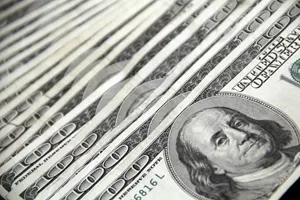Easement of Foreign Exchange Restrictions
The Executive Branch, the BCRA, and the CNV implement new measures as part of Phase 3 of the Federal Government’s Economic Program.

In the context of the new agreement with the International Monetary Fund (IMF) and the managed floating exchange rate system with bands that the Federal Government announced [(see related article)], the Argentine Central Bank (BCRA) issued Communication “A” 8226, easing several restrictions that were in place for accessing the foreign exchange market.
Additionally, the Argentine Securities Commission (CNV) issued General Resolution 1062, which eliminates the minimum holding period for negotiable securities (commonly referred to as the “parking” requirement) for Argentine resident individuals.
Finally, the Executive Branch repealed the Export Increase Program (commonly referred to as the " blend dollar") through Decree 269/2025, which repealed Decree 28/2023. The reflected this change by issuing Communication “A” 8227, also effective as of April 14, 2025.
Key Changes
1. For Legal Entities
a. Flows
- Sworn statements regarding transactions involving securities: The BCRA has lifted, on a one-time basis, the 90-day “cross restriction” to allow legal entities that conducted any of the transactions listed in items (i) to (vii) of article 3.16.3 of the Consolidated Regulations on Foreign Tarde and Exchange until April 11, 2025, to access the foreign exchange market. These transactions should not be included in the sworn statements required under articles 3.16.3.1 and 3.16.3.4 of said regulations.
This is not a repeal of the rule, but rather a temporary exemption for a specific period. Consequently, any transactions carried out in the foreign exchange or capital markets after April 11, 2025, will once again be subject to the 90-day “cross restriction” as before.
- Payment of dividends and profits: Access to the foreign exchange market is authorized for remitting dividends and profits to non-resident shareholders, provided they relate to realized earnings in annual, regular, and audited financial statements of fiscal years starting on or after January 1, 2025, and all other applicable requirements are met. In practice, this means that dividend payments may resume in 2026.
- Payment of goods imports
-
- For transactions officially recorded as of April 14, 2025, access is allowed from the date of customs entry registration.
-
- SMEs may pay for goods shipped from origin on or after that date.
-
- Advance payments f up to 30% of the FOB value are permitted for capital goods. Moreover, the sum of advance payments, sight payments, and commercial debt payments without customs entry registration processed under this provision does not exceed 80% of the FOB value of the goods to be imported.
In all cases, the general requirements for access to the foreign exchange market for those transactions must be met.
- Payment of services imports
-
- For services provided by unrelated parties, payment is allowed from the date of rendering or accrual.
-
- For services from related parties, access is allowed 90 calendar days after the date of rendering or accrual.
Financial institutions must verify compliance with general requirements for these types of transactions.
- Formation of foreign assets for energy imports: access to the foreign exchange market is no longer allowed for companies with majority state ownership for the formation of foreign assets to pay for imports of fuel or energy with customs entry registration after December 13, 2023.
b. Stocks
- New BOPREAL issuance: The BCRA announced a new series of Bonds for the Reconstruction of a Free Argentina (BOPREAL), which may be subscribed in ARS to cancel foreign obligations incurred before 2025, including dividends and commercial debts dated prior to December 12, 2023. As of now, this announcement has not been regulated, but the upcoming regulation is expected to address all outstanding legacy stocks.
c. Exports
- Repeal of the “blend dollar” scheme: Decree 269/2025 repealed the regime that allowed exporters to settle 80% of their proceeds in the foreign exchange market and the remaining 20% via the financial market. As of April 14, 2025, 100% of export proceeds must be settled through the foreign exchange market, pursuant to the general regulations.
2. For Individuals
- Purchase of foreign currency for savings or deposits: Access to the foreign exchange market is authorized without a cap or prior approval from the BCRA, provided certain operational requirements are met (e.g., debiting a bank account, evidencing income). In addition, previous restrictions related to government assistance or subsidies during the pandemic have been eliminated.
- Securities transactions: Operational restrictions on the purchase and sale of securities settled in foreign currency have been lifted, including the 90-day “cross restriction.” Separately, the CNV eliminated the holding period (“parking”) requirement for resident individuals.
- Real estate purchases in Argentina: the rules governing access to the foreign exchange market for purchasing real estate in Argentina for primary residence purposes have been repealed.
These measures mark a shift toward a more flexible foreign exchange regime, with direct effects on the day-to-day operations of individuals and businesses, as well as on market expectations regarding access to the official exchange rate and the broader outlook for investment and foreign trade.
This insight is a brief comment on legal news in Argentina; it does not purport to be an exhaustive analysis or to provide legal advice.